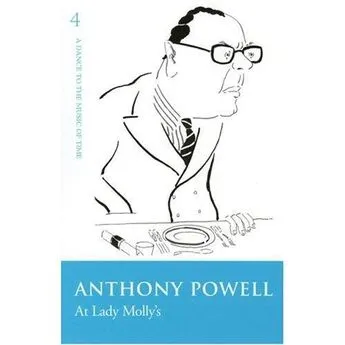Anthony Trollope - Autobiography of Anthony Trollope
- Название:Autobiography of Anthony Trollope
- Автор:
- Жанр:
- Издательство:неизвестно
- Год:неизвестен
- ISBN:нет данных
- Рейтинг:
- Избранное:Добавить в избранное
-
Отзывы:
-
Ваша оценка:
Anthony Trollope - Autobiography of Anthony Trollope краткое содержание
EBook of Autobiography of Anthony Trollope by Anthony Trollope (www.anthonytrollope.com)
Autobiography of Anthony Trollope - читать онлайн бесплатно ознакомительный отрывок
Интервал:
Закладка:
to the end? How shall he cover his space? Many great artists have
by their practice opposed the doctrine which I now propose to
preach;--but they have succeeded I think in spite of their fault
and by dint of their greatness. There should be no episodes in a
novel. Every sentence, every word, through all those pages, should
tend to the telling of the story. Such episodes distract the
attention of the reader, and always do so disagreeably. Who has not
felt this to be the case even with The Curious Impertinent and with
the History of the Man of the Hill. And if it be so with Cervantes
and Fielding, who can hope to succeed? Though the novel which you
have to write must be long, let it be all one. And this exclusion
of episodes should be carried down into the smallest details.
Every sentence and every word used should tend to the telling of
the story. "But," the young novelist will say, "with so many pages
before me to be filled, how shall I succeed if I thus confine
myself;--how am I to know beforehand what space this story of mine
will require? There must be the three volumes, or the certain number
of magazine pages which I have contracted to supply. If I may not
be discursive should occasion require, how shall I complete my task?
The painter suits the size of his canvas to his subject, and must
I in my art stretch my subject to my canas?" This undoubtedly must
be done by the novelist; and if he will learn his business, may
be done without injury to his effect. He may not paint different
pictures on the same canvas, which he will do if he allow himself
to wander away to matters outside his own story; but by studying
proportion in his work, he may teach himself so to tell his story
that it shall naturally fall into the required length. Though his
story should be all one, yet it may have many parts. Though the
plot itself may require but few characters, it may be so enlarged
as to find its full development in many. There may be subsidiary
plots, which shall all tend to the elucidation of the main story,
and which will take their places as part of one and the same
work,--as there may be many figures on a canvas which shall not to
the spectator seem to form themselves into separate pictures.
There is no portion of a novelist's work in which this fault of
episodes is so common as in the dialogue. It is so easy to make
any two persons talk on any casual subject with which the writer
presumes himself to be conversant! Literature, philosophy, politics,
or sport, may thus be handled in a loosely discursive style; and
the writer, while indulging himself and filling his pages, is apt
to think that he is pleasing his reader. I think he can make no
greater mistake. The dialogue is generally the most agreeable part
of a novel; but it is only so as long as it tends in some way to
the telling of the main story. It need not seem to be confined to
that, but it should always have a tendency in that direction. The
unconscious critical acumen of a reader is both just and severe.
When a long dialogue on extraneous matter reaches his mind, he at
once feels that he is being cheated into taking something which he
did not bargain to accept when he took up that novel. He does not
at that moment require politics or philosophy, but he wants his
story. He will not perhaps be able to say in so many words that at
some certain point the dialogue has deviated from the story; but
when it does so he will feel it, and the feeling will be unpleasant.
Let the intending novel-writer, if he doubt this, read one of
Bulwer's novels,--in which there is very much to charm,--and then
ask himself whether he has not been offended by devious conversations.
And the dialogue, on which the modern novelist in consulting the
taste of his probable readers must depend most, has to be constrained
also by other rules. The writer may tell much of his story in
conversations, but he may only do so by putting such words into
the mouths of his personages as persons so situated would probably
use. He is not allowed for the sake of his tale to make his characters
give utterance to long speeches, such as are not customarily heard
from men and women. The ordinary talk of ordinary people is carried
on in short, sharp, expressive sentences, which very frequently are
never completed,--the language of which even among educated people
is often incorrect. The novel-writer in constructing his dialogue
must so steer between absolute accuracy of language--which would
give to his conversation an air of pedantry, and the slovenly
inaccuracy of ordinary talkers, which if closely followed would
offend by an appearance of grimace--as to produce upon the ear of
his readers a sense of reality. If he be quite real he will seem
to attempt to be funny. If he be quite correct he will seem to
be unreal. And above all, let the speeches be short. No character
should utter much above a dozen words at a breath,--unless the writer
can justify to himself a longer flood of speech by the specialty
of the occasion.
In all this human nature must be the novel-writer's guide. No doubt
effective novels have been written in which human nature has been
set at defiance. I might name Caleb Williams as one and Adam Blair
as another. But the exceptions are not more than enough to prove
the rule. But in following human nature he must remember that he does
so with a pen in his hand, and that the reader who will appreciate
human nature will also demand artistic ability and literary aptitude.
The young novelist will probably ask, or more probably bethink
himself how he is to acquire that knowledge of human nature which
will tell him with accuracy what men and women would say in this
or that position. He must acquire it as the compositor, who is to
print his words, has learned the art of distributing his type--by
constant and intelligent practice. Unless it be given to him to
listen and to observe,--so to carry away, as it were, the manners
of people in his memory as to be able to say to himself with assurance
that these words might have been said in a given position, and that
those other words could not have been said,--I do not think that
in these days he can succeed as a novelist.
And then let him beware of creating tedium! Who has not felt the
charm of a spoken story up to a certain point, and then suddenly
become aware that it has become too long and is the reverse of
charming. It is not only that the entire book may have this fault,
but that this fault may occur in chapters, in passages, in pages,
in paragraphs. I know no guard against this so likely to be effective
as the feeling of the writer himself. When once the sense that the
thing is becoming long has grown upon him, he may be sure that it
will grow upon his readers. I see the smile of some who will declare
to themselves that the words of a writer will never be tedious to
himself. Of the writer of whom this may be truly said, it may be
said with equal truth that he will always be tedious to his reader.
CHAPTER XIII ON ENGLISH NOVELISTS OF THE PRESENT DAY
In this chapter I will venture to name a few successful novelists
of my own time, with whose works I am acquainted; and will endeavour
to point whence their success has come, and why they have failed
when there has been failure.
I do not hesitate to name Thackeray the first. His knowledge of
human nature was supreme, and his characters stand out as human
beings, with a force and a truth which has not, I think, been
within the reach of any other English novelist in any period. I know
no character in fiction, unless it be Don Quixote, with whom the
reader becomes so intimately acquainted as with Colonel Newcombe.
How great a thing it is to be a gentleman at all parts! How we
admire the man of whom so much may be said with truth! Is there
any one of whom we feel more sure in this respect than of Colonel
Newcombe? It is not because Colonel Newcombe is a perfect gentleman
that we think Thackeray's work to have been so excellent, but
because he has had the power to describe him as such, and to force
us to love him, a weak and silly old man, on account of this grace
of character. It is evident from all Thackeray's best work that he
lived with the characters he was creating. He had always a story
to tell until quite late in life; and he shows us that this was
so, not by the interest which be had in his own plots,--for I doubt
whether his plots did occupy much of his mind,--but by convincing
us that his characters were alive to himself. With Becky Sharpe,
with Lady Castlewood and her daughter, and with Esmond, with
Warrington, Pendennis, and the Major, with Colonel Newcombe, and
with Barry Lynon, he must have lived in perpetual intercourse.
Therefore he has made these personages real to us.
Among all our novelists his style is the purest, as to my ear it is
also the most harmonious. Sometimes it is disfigured by a slight
touch of affectation, by little conceits which smell of the oil;--but
the language is always lucid. The reader, without labour, knows what
he means, and knows all that he means. As well as I can remember,
he deals with no episodes. I think that any critic, examining
his work minutely, would find that every scene, and every part of
every scene, adds something to the clearness with which the story
is told. Among all his stories there is not one which does not
leave on the mind a feeling of distress that women should ever
be immodest or men dishonest,--and of joy that women should be so
devoted and men so honest. How we hate the idle selfishness of
Pendennis, the worldliness of Beatrix, the craft of Becky Sharpe!--how
we love the honesty of Colonel Newcombe, the nobility of Esmond,
and the devoted affection of Mrs. Pendennis! The hatred of evil
and love of good can hardly have come upon so many readers without
doing much good.
Late in Thackeray's life,--he never was an old man, but towards the
end of his career,--he failed in his power of charming, because he
allowed his mind to become idle. In the plots which he conceived,
and in the language which he used; I do not know that there is any
perceptible change; but in The Virginians and in Philip the reader
is introduced to no character with which he makes a close and undying
acquaintance. And this, I have no doubt, is so because Thackeray
himself had no such intimacy. His mind had come to be weary of
that fictitious life which is always demanding the labour of new
creation, and he troubled himself with his two Virginians and his
Philip only when he was seated at his desk.
At the present moment George Eliot is the first of English novelists,
and I am disposed to place her second of those of my time. She
is best known to the literary world as a writer of prose fiction,
and not improbably whatever of permanent fame she may acquire will
come from her novels. But the nature of her intellect is very far
removed indeed from that which is common to the tellers of stories.
Her imagination is no doubt strong, but it acts in analysing rather
Читать дальшеИнтервал:
Закладка:








